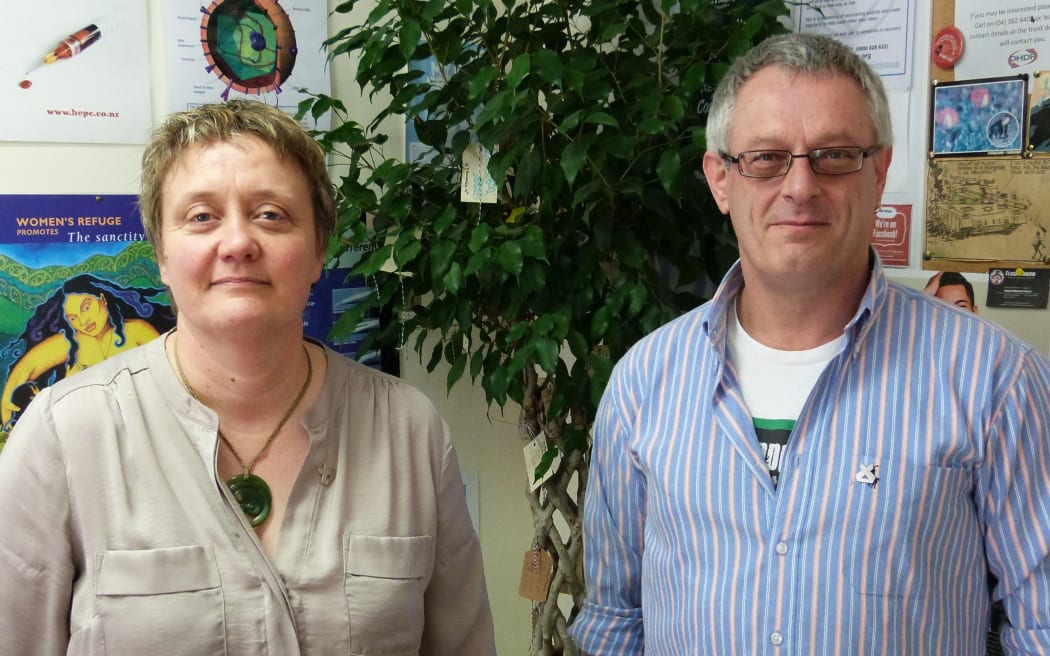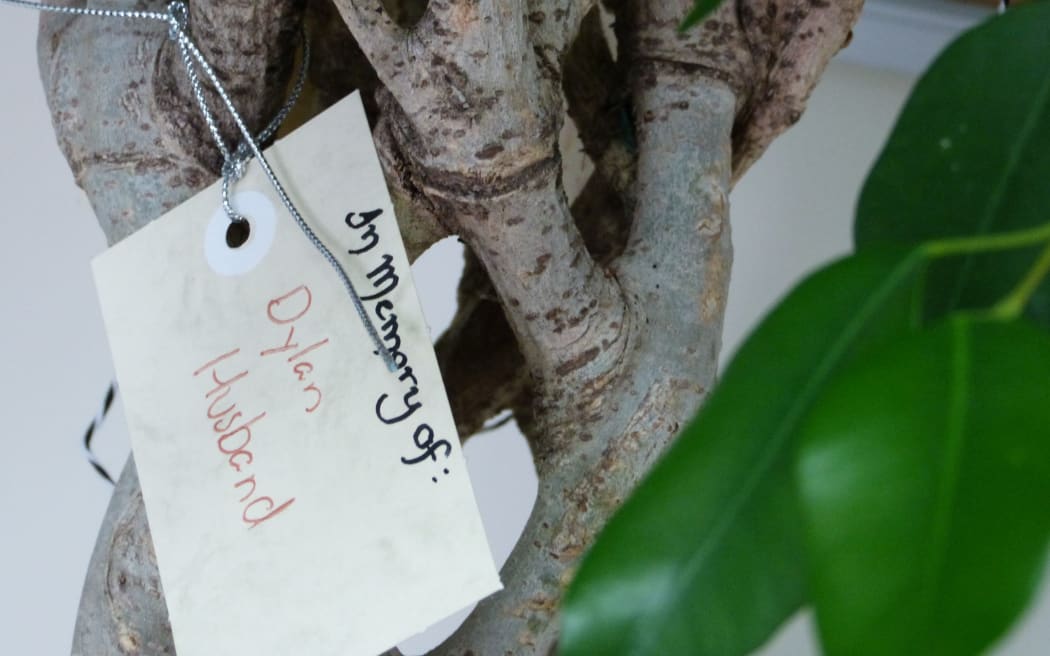During a minute's silence in downtown Wellington this afternoon, Carl Greenwood thought of his friend Suzy, who overdosed in 2013.

Kathryn Leafe, and Carl Greenwood at the Wellington needle exchange as part of International Overdose Awareness Day. Photo: RNZ / Max Towle
To recognise International Overdose Awareness Day, Mr Greenwood and dozens of others hung tags with the names of loved ones who had died from overdoses on a memorial tree at the Wellington needle exchange.
"You left behind a lot more friends than you probably realised and you weren't as alone as you probably thought you were," he said he would have told her.
People often overdose because they are not sure what they are putting into their bodies, and do not have the necessary help on hand, he said.
"When you're buying drugs on the street or on the black market there's not a label saying exactly what it is, so if people tell you it's something, you believe them.
"It's not like suicide where someone has set out to take their life. Overdose is usually an accident ... if someone had been around and paramedics had been called earlier then we wouldn't have lost Suzy."

Dozens of people hung tags with the names of loved ones at the Wellington needle exchange. Photo: RNZ / Max Towle
The needle exchange allows drug users to collect clean hypodermic needles. It allows people anonymity and staff do not pass judgement.
New Zealand has one of the lowest rate of HIV prevalence among drug users in the world - 0.2 percent.
The first needle exchange in New Zealand - a programme funded by the Ministry of Health - opened nearly 30 years ago.
It was the first state-sponsored exchange in the world.
"Research in other regions where programmes providing sterile injection equipment and collection of used equipment don't exist, show worryingly high rates of HIV among injecting drug users - as high as 50 percent in Russia, Africa, Asia and some states in the USA," its website said.
Nevertheless, Mr Greenwood said stigma and discrimination prevented many from sharing their experiences.
"Nearly every week in New Zealand a person dies from a drug overdose. It's hard enough already for families to lose a loved one, a partner, a parent, a child, a sibling, a best friend," he said.
"It's harder still when society tells families that their loved ones' lives were worthless because they died from drugs."
The anonymity of the needle exchange is an important aspect, said the trust's executive director, Kathryn Leafe.
"We build important relationships with people who come and that's absolutely key as, over time, people may start to raise issues or ask questions, or we may notice an abscess on someone's arm for instance and we've got a relationship whereby we can say they may need further help," she said.
She said an important development was the looming rollout of the overdose-reversal drug Naloxone, which was recently declassified so people can buy it without a prescription.

